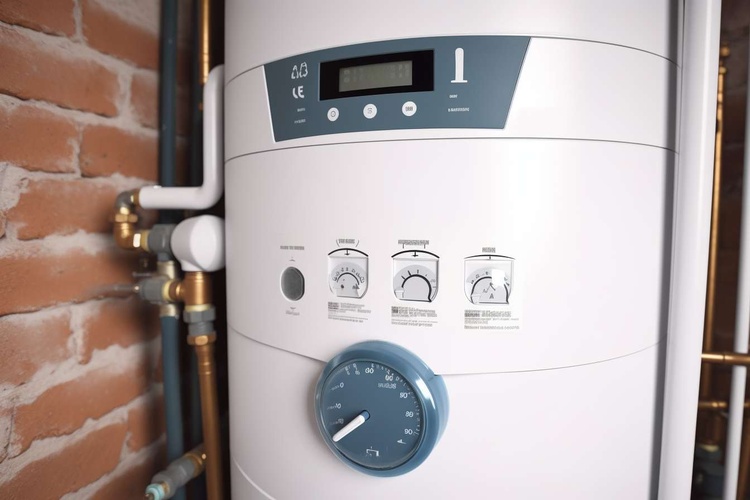Depression Test: A Starting Point for Self-Reflection
Depression affects millions of people worldwide, yet many individuals struggle to recognize its symptoms or seek appropriate help. A depression test offers a systematic way to assess potential symptoms and their severity. While not a substitute for professional diagnosis, these screening tools provide valuable insight into one's mental health and can serve as a first step toward understanding and addressing depressive feelings. This article explores how depression tests work, what they measure, and how to use their results effectively.

What Is a Depression Test?
A depression test is a standardized questionnaire designed to screen for symptoms commonly associated with depression. These assessments typically ask about your feelings, behaviors, and physical symptoms over a specific period, usually the past two weeks. Common depression tests include the Patient Health Questionnaire (PHQ-9), Beck Depression Inventory (BDI), and Hamilton Depression Rating Scale (HAM-D). Each test uses different scoring systems to categorize symptom severity from minimal to severe. While these tools can identify potential depression, they don’t diagnose clinical depression—that requires evaluation by a qualified healthcare professional.
How to Take a Quick Depression Test
Taking a quick depression test is straightforward and typically requires 5-10 minutes of your time. Most tests are self-administered and consist of multiple-choice questions that ask about your recent experiences with symptoms like persistent sadness, loss of interest in activities, sleep disturbances, and changes in appetite. To get accurate results, answer honestly rather than selecting what you think is the “right” answer. Many reliable tests are available online through mental health organizations, healthcare providers, or reputable mental health websites. Some tests can be completed anonymously, which may help those concerned about privacy when first exploring their symptoms.
Common Signs of Depression Measured in Tests
Depression tests evaluate a range of psychological and physical symptoms that characterize depressive disorders. These typically include:
-
Persistent feelings of sadness, emptiness, or hopelessness
-
Loss of interest or pleasure in activities once enjoyed
-
Changes in appetite and weight (either increase or decrease)
-
Sleep disturbances (insomnia or excessive sleeping)
-
Fatigue or loss of energy
-
Feelings of worthlessness or excessive guilt
-
Difficulty concentrating or making decisions
-
Recurrent thoughts of death or suicide
Most depression tests weight these symptoms differently, as some are more strongly correlated with clinical depression than others. The presence of suicidal thoughts, for example, is generally considered more serious and may trigger recommendations for immediate help regardless of the overall score.
Understanding Your Depression Test Results
Interpreting depression test results requires context and careful consideration. Most tests categorize scores into severity ranges: minimal, mild, moderate, and severe. A higher score typically indicates more severe symptoms. However, these results should be viewed as a starting point rather than a definitive diagnosis. Various factors can influence your responses, including recent life events, physical health conditions, or even the time of day you take the test. If your results indicate moderate to severe symptoms, consider discussing them with a healthcare provider. Even mild scores may warrant attention if symptoms persist for more than two weeks or interfere with daily functioning.
When to Seek Professional Help After a Depression Test
While depression tests provide valuable self-awareness, they have limitations. Consider consulting a mental health professional if:
-
Your test results indicate moderate to severe depression
-
You’ve experienced symptoms for more than two weeks
-
Your symptoms interfere with work, relationships, or daily activities
-
You have thoughts of harming yourself or others
-
You’ve tried self-help strategies without improvement
Remember that seeking help is a sign of strength, not weakness. Mental health professionals can offer a proper diagnosis, rule out other conditions with similar symptoms (like thyroid disorders or vitamin deficiencies), and recommend appropriate treatment options. These might include therapy, medication, lifestyle changes, or a combination approach tailored to your specific needs.
The Role of Regular Depression Screening
Regular depression screening can be beneficial, especially for those with risk factors like family history of depression, chronic illness, major life changes, or previous depressive episodes. Just as we get routine physical check-ups, periodic mental health screenings can help catch problems early. Many primary care providers now incorporate depression screening into annual exams. For those managing depression, regular assessments can track treatment progress and signal when adjustments might be needed. Self-administered tests can supplement professional care by monitoring symptoms between appointments, though they shouldn’t replace regular communication with healthcare providers.
In conclusion, depression tests offer a valuable starting point for self-reflection and mental health awareness. They provide structure for identifying and assessing symptoms that might otherwise be dismissed or normalized. However, they work best as part of a broader approach to mental health that includes professional guidance, supportive relationships, and healthy lifestyle practices. If you’re struggling with depressive symptoms, remember that effective treatments exist, and reaching out for help is an important step toward recovery.
This article is for informational purposes only and should not be considered medical advice. Please consult a qualified healthcare professional for personalized guidance and treatment.




